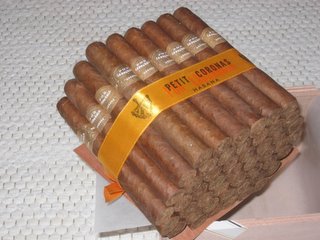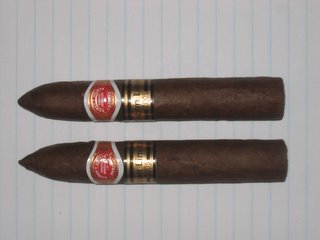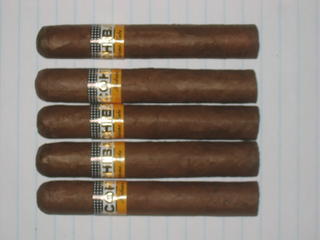Once upon a time in Handan, the capital of Zhao, there lived a man named Ji Chang who wanted to be the greatest archer in the world. He decided to find the best possible teacher.
As far as he knew, nobody could be as good as the great master of archery, Fei Wei. It was said that Fei Wei could hit a willow leaf without fail from a distance of a hundred paces. Ji Chang made a long journey to call on Fei Wei, and he became the great master's apprentice.
First, Fei Wei told him, "Learn not to blink." Ji Chang came back home. He crawled under his wife's loom and lay there on his back, watching as she wove. He watched the "maneki" move quickly up and down, quite close to his eyelids, and he began training himself not to blink. His wife, knowing nothing about his ambition, could not understand his behavior. She hated being watched so closely in such a strange way. But he scolded her, and forced her to continue weaving.
Day after day, he remained in his strange position, learning not to blink. Within two years, he had trained himself not to blink, even when the busy "maneki" was so close that it shaved his eyelids. One day he finally crawled out from underneath the loom. From that day forward, Ji Chang wouldn't blink, even if an irritating bit of debris got into his eye. He wouldn't blink, even if a spark entered his eye. Not even a cloud of ashes could make him blink. It was as if the muscles of his eyelids had forgotten how to blink. Even when Ji Chang was sleeping soundly at night, his eyes remained wide open. One day, he noticed a small spider making a cobweb between the upper and lower lids of one of his eyes. That gave him confidence, and he went to tell his master about it.
Having heard Ji Chang's story, Fei Wei said to him, "It is not enough for you to gain the ability to avoid blinking. You must also learn to watch an object. If, while concentrating on an object, you become able to see small things as if they were big and microscopic things as if they were conspicuous, come and tell me. Only then will I tell you how to shoot a bow."
Ji Chang went back home again. He found a louse on a seam of his underwear and tied it up with one of his hairs. He hung it in his southern window and watched it all day. Day after day he watched the louse hanging at the window.
It was of course only a louse at first. A few days later it was still just a louse. But after ten days, it seemed to be growing larger. At the end of the third month, it clearly looked as large as a silkworm.
The scenery outside the window changed as time went by. The delightful spring sunshine became the parching heat of summer. The clear autumn sky, filled with flying geese, grew gray and wintry, with cold sleet falling to the ground. Meanwhile, Ji Chang patiently continued to watch the louse. Each time the louse died, he replaced it with another one.
Soon, three years had gone by. One day he was aware that the louse seemed as large as a horse. Fantastic! He slapped his knee with joy, and went outside. He couldn't believe what he saw: people big as towers, horses big as mountains. A pig was a hill. A chicken was a watchtower. He ran back inside and faced the louse again. Ji Chang put an arrow made from the stem of a northern mugwort in his bow of Yan horn, aimed it at the louse and shot it. To his surprise, the arrow cut through the center of the louse, leaving the single hair intact.
Ji Chang immediately went to see the master, and told him what had happened. Fei Wei jumped up and beat his chest. "You did it!" he said. He immediately began to initiate Ji Chang into the mysteries of archery.
Ji Chang, who had spent five years in eye training, made surprising progress. Ten days later, he made an attempt to shoot a willow leaf from a distance of a hundred paces. He succeeded, and after that he never failed. Twenty days later, he drew a stiff bow while holding a cup full of water on his right elbow. Not only did he hit his mark, but also the water in the cup didn't move at all.
A month passed, and he tried the rapid shooting of a hundred arrows. As soon as the first arrow hit its mark, the tip of the second arrow hit the tail of the first. Instantly, the third caught the second, and so on. No arrow fell to the ground, because each one hit the arrow in front of it. When he had finished, the hundred arrows were attached end to end like a single long arrow. And the last arrow looked as if its tail were still attached to the string. The master Fei Wei, who was standing beside him, spontaneously shouted out," Good!"
Two months later, Ji Chang happened to come home, and quarreled with his wife. He aimed his raven bow at his wife's eyelid and shot a Qi Wei arrow. The arrow cut three hairs of her eyelid, and passed on harmlessly. But she was not aware of being shot, so she continued quarreling without a blink. It was surprising that he had achieved such mysterious skill and speed in archery.
Ji Chang, who had nothing to learn any more from Fei Wei, became preoccupied with an evil notion. As far as he knew, nobody could compete with him now except for the master, Fei Wei. So, he had to eliminate Fei Wei in order to be the greatest archer in the world. He began looking for a chance to assassinate Fei Wei.
One day he came across Fei Wei walking alone in a field. He quickly made up his mind, and he put an arrow in his bow and aimed it at Fei Wei, who, recognizing his student's intent, also raised his own bow and aimed an arrow at Ji Chang. When they shot at the same time, their arrows hit one another midway between them and fell to the ground. The skill of the two men had reached the mysteries of archery. That was why the arrows didn't raise even the least dust.
When Fei Wei had used up all his arrows, Ji Chang still had one more. Ji Chang put the arrow in his bow and shot at Fei Wei, who quickly broke a branch of a wild rose and with the tip of a thorn smartly knocked the arrow down. Ji Chang, who had realized that there was no hope of attaining his ambition, felt an unexpected moral repentance. For his part Fei Wei felt relieved that the danger had passed and he was satisfied with his own technical skill. That was why he forgot his hatred for his rival. They embraced each other in the field and burst into tears.
This may seem strange, but this tale comes from a time long ago when things were quite different from today. For example, Duke Huan of Qi, ordered Yi Ya his cook to prepare some especially delicious food. Yi Ya, wishing to please his king, roasted his own son as a special meal. In another example from those days, the sixteen-year-old first emperor of the Qin Dynasty raped his father's lover three times on the same night his father died.
Although he embraced Ji Chang with tears, Fei Wei was much afraid of another attack by his apprentice.Therefore he gave Ji Chang a new goal to work toward. He told the dangerous apprentice that he had nothing more to teach him. He also told Ji Chang that if he wanted answers to the deeper mysteries of archery, he should go west and climb the steep Taihang mountain range to the summit of Mount Huo, home of Gan Ying, the greatest archer of all time.
"Compared to the skill of this old master, our skills look like child's play," said Fei Wei. "From now on, no one but Gan Ying is fit to be your instructor."
Ji Chang immediately began traveling west. The words "child's play" had hurt his pride. If those words were true, his effort to become the greatest archer of all time was only beginning. To find out whether his hard-won skill was truly only "child's play", he rushed to see the master.
Injuring his feet and legs, climbing dangerous rocks, trudging narrow wooden walkways built high on cliff faces above deep valleys, he finally arrived at the summit of Mount Huo one month later. Ji Chang was irritated to find only a tottering old man with eyes like a sheep. "He must be more than a hundred years old," Ji Chang thought. Partly because he was severely bent at the waist, the old man's gray beard dragged on the ground as he walked.
Thinking that he might be deaf, Ji Chang loudly told the old master about his wish to become the greatest archer of all time. Without waiting for the master's reply, Ji Chang pulled out his bow and put an arrow in it. He aimed at a flock of migrating birds high in the sky. As soon as his bowstring rang, five big birds fell from the clear blue sky.
"You do well, in an ordinary way", said the old man with a gentle smile. "But that is only an ordinary level of archery. It's a pity you don't know truly extraordinary archery."
The old hermit led a very dissatisfied Ji Chang 200 feet away to the top of a cliff. From the edge of the cliff one could see a faint stream thousands of feet below, a view that could easily cause dizziness. The old man ran a short distance away and stood atop a teetering stone at the edge of the cliff, looked round at Ji Chang and said "Will you show me the same skill, just as you did before?"
When Ji Chang stood on top of the stone, it moved very slightly. He forced himself to put an arrow to his bow, and just then a small stone fell from the edge of the cliff. Suddenly gripped with fear of the great height, he lay down on the teetering rock. He couldn't stop his legs from shivering, and he began sweating all over his body. Sweat dripped to his heels.
With a smile the old man reached out his hand to help Ji Chang down from the stone. Then the old man stepped up on the stone and said, "Now I will show you some extraordinary archery." Pale and shaking with fear, Ji Chang noticed something. "Why don't you have a bow? He asked. The old man was empty-handed. "A bow?" the master answered, laughing. "As long as you need a bow, you cannot enter the mysteries of archery. When you become a great archer, you need neither a bow lacquered in black nor an arrow with a beech shaft and a stone head."
A kite was flying very high in the sky just above them, slowly circling. For a while Gan Ying watched the kite, which at such a great distance seemed no bigger than a sesame seed. Then he fitted an invisible arrow to an intangible bow, aimed, and shot at the kite. The kite fell from the sky like a stone. The sight frightened Ji Chang. He had now experienced the deepest mystery of archery for the first time.
Ji Chang stayed as an apprentice of this old master for nine years. No one knew what kind of training he received in this period.
When Ji Chang came back from the mountain for the first time in nine years, people were surprised at how different he looked compared with before. He had lost his unyielding, intrepid look, and had the expressionless features of a fool instead. But when he visited his former teacher, Fei Wei, after his long absence, Fei Wei glanced at him and said excitedly, "This is the greatest master in the world. We shall never rival him."
People in Handan expected to see the mysterious skill which would be exhibited by Ji Chang, the greatest archer of all time. But Ji Chang had no intention of showing his authority. He didn't touch even a bow. It looked as if he had thrown away the bow which, made from the stem of a willow with a hemp string, he had taken to the mountain with him. Ji Chang languidly answered the man who asked him the reason, "The best deed is to do nothing. The best saying is to be silent. The best shooting is not to shoot."
Superficial people in Handan understood it very easily. The great archer who didn't touch a bow became the pride of the people of Handan. The less he touched a bow, the more his mysterious fame spread.
People spread many rumors. For example, there used to be unknown bowstring sounds over Ji Chang's house late every night. It was said that the spirit of archery in the master stole out of his body when he was asleep, and was protecting him from goblins all through the night.
A merchant who lived close to his house said that one night he certainly saw Ji Chang riding on a cloud, playing an archery game with the ancient masters, Yi and Yang Youji, in the sky above his house. He also said that the arrows shot by the three masters made three bluish threads of light, and disappeared in space.
A thief confessed that he was going to steal into Ji Chang's house; but as soon as he stepped over the garden wall he was struck on the forehead by a stream of spirit out of the house, and fell away from the wall. Since then evil-minded people avoided Ji Chang's house, and migrating birds would not fly over his residence.
The great master Ji Chang got older and older, his fame growing with each year that passed. His thoughts had already left archery for a long time. He looked as if he were entering into spiritual mysteries. His almost expressionless face further lost expression. He rarely spoke. Finally, it became difficult to tell whether he was breathing or not. The old master said in his final days that he couldn't differentiate between himself and others, nor between good and evil, and that his eye felt like his ear, his ear like his nose and his nose like his mouth.
Forty years after leaving Master Gan Ying's house, Ji Chang died as quietly as mist. During those forty years he never even spoke of archery, let alone take up a bow and arrow. Of course, as the writer of the fable I would like to have him play an important, active part in some incident, and prove his greatness as a master archer. But on the other hand I must not go against the facts that are written in the classics. In fact, nothing was heard about him toward the end of his life except for the following strange tale. It goes like this:
One day, a few years before his death, old Ji Chang was invited to the house of an acquaintance. He saw a tool in that house, and felt as if he had seen one like it before, but he could remember neither its name nor how to use it. Old Ji Chang asked his host, "What is that, and how do you use it?" The host thought his guest was making fun of him. He smiled but didn't answer him. Ji Chang asked again, more earnestly this time. But the host was at a loss how to answer. When Ji Chang asked the same question for the third time, a look of astonishment appeared on his host's face. The host looked Ji Chang in the eye, trying to ascertain that his guest was not joking and was not crazy, and that he himself had not wrongly heard the question. He looked dismayed, almost to the point of being afraid, and said stammering, "You, the greatest archer of all time, have forgotten the bow? Both its name and how to use it?"
For a while after this incident, it was said that painters hid their brushes, musicians cut the strings of their instruments, and carpenters were ashamed to use their measures.





